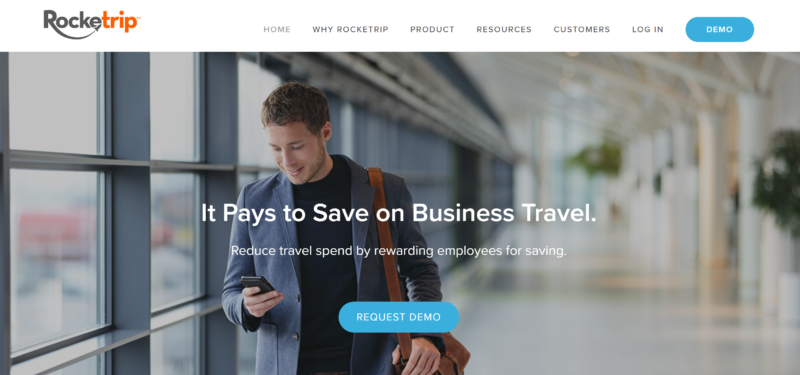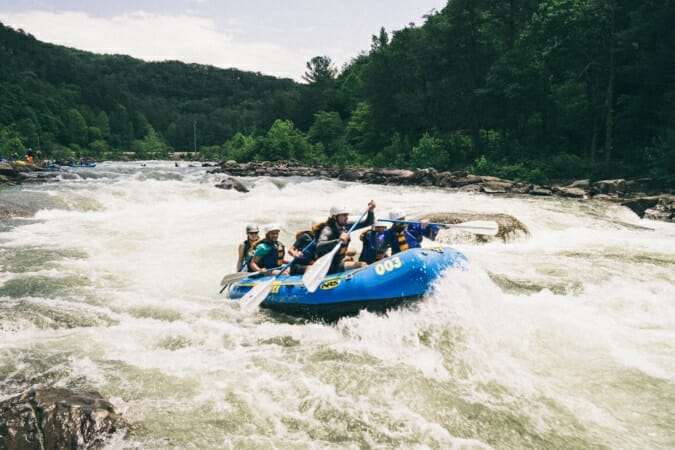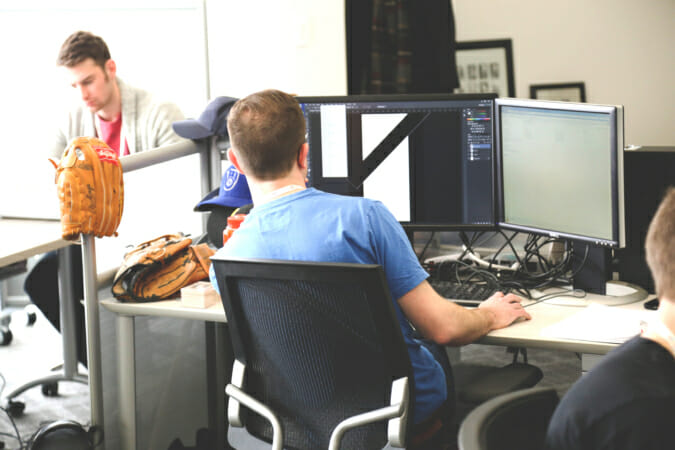Building a Strong Team is Vital for Every Travel Startup
We've been writing this blog for a while now, and though we've looked at the ins and outs of the travel industry and the intricacies of how technology and global trends are changing tourism for the better, there's one topic that we haven't covered yet. Although it's vital to every single travel startup out there, the notion of team building, of bringing together the right individuals to carry your ambition forward, is not something that's widely discussed. Today we want to put an end to that.
So what makes for the perfect team at a travel startup? How important are the individual components in the context of the whole? How do you go about choosing the right people to join you on your journey to the top of the travel industry? These are the questions we'll be delving into today.
The importance of a great team in the travel industry
Normally, successful startups require dedicated staff willing to go the extra mile when necessary. In the travel industry things are no different. There's a reason that the majority of startups fail within the first two years: Setting up a new business is fraught with risk and potential mishaps. In the world of travel and tourism - which is cutthroat enough at the best of times - this point couldn't be more pertinent. Customer loyalty is increasingly non-existent and online competition is fierce, so a strong group of individuals is key to ensuring that your startup stays on the right track.

We spoke to Dan Ruch, founder of business travel startup Rocketrip, to gain some insight into the importance of a solid team when setting out in the travel industry. With Rocketrip, companies can empower employees on corporate trips by giving them a real-time 'Budget to Beat' and motivating them to save. This helps to keep travel costs down and gives businesses more control over their expenses.
So, what does Ruch look for when hiring new staff? Interestingly, he suggested that having experience in the industry isn't a defining factor. Instead, it's more about the personal qualities that a candidate can bring to the table. "Travel industry experience is less important than other attributes," he said. Those other attributes being "a willingness to collaborate, a great work ethic, and imagination."

This is something that chimes with an interview we conducted recently in our in-depth look at corporate travel, with Beewake co-founder Jeremie Catez . He said that "in any corporation, but even more importantly in a startup, the team is the key to success, the same as in a relationship. Good teamwork is essential in all organisations. It signifies that people are working towards a shared purpose and common goals and in so doing they are sharing their varied skills in complementary roles and in cooperation with each other.”
Another point that Ruch made was the importance of a philosophy, of a shared goal and a team willing to invest their time and skills to make it a reality. Any startup team is going to be relatively small to begin with, so it goes without saying that each individual needs to understand what is expected of them and contribute to building positive momentum. "Conviction is one of the most important traits to look for", said Ruch, "because at any startup, there will be plenty of long hours, moments of uncertainty, times when everyone's stretched thin. Belief in the company and in the team is what gets people through these challenges."
And one final factor in building a great travel startup team? According to Rocketrip founder Dan Ruch, it's flexibility. Startups require a unique blend of people, and while Ruch emphasised the need for commitment and creativity, we liked his suggestion that "a willingness to take on new responsibilities" is vital, too. As travel startups grow, it's only natural that job roles will evolve, so staff need to be adaptable and prepared to step up and try new things when needed.
Building the perfect travel startup team

Get staff you need when you need them
In a classic Forbes article, Josh Steimle suggests that the two most important factors for building a startup team are identifying the areas you need filled and prioritising the order in which you fill them. Certain roles, such as sales and marketing, can overlap to an extent, so it might be a good idea to "find one person to take on multiple roles, at least initially," he says.
He makes the important point that sales should be your priority. No travel startup is going to get off the ground without them, after all. "If I’m not bringing in deals, I have no reason to hire anyone else," he says. Who comes next after a strong sales team depends completely on the situation at hand and the market you are targeting. It may be that you need someone to cover SEO, PR, or social media. If the sales are still flying in, that team might need to be expanded.
Have a meticulous hiring process
Your travel startup is your baby, the result of an idea that you're passionate about and desperately want to succeed. Clearly, you shouldn't take hiring lightly. So what does that entail then? Well, for a start, you're probably going to have to interview multiple candidates every vacancy that you advertise. But just interviewing a bunch of people isn't going to be enough. You need to interview them properly. You need to put them in different scenarios to see if they will suit your team and are a good fit for your startup.
Remember: Interviews don't have to be formal. They don't even have to be interviews. Just having lunch and getting to know each other, emailing or calling with a few questions - all of this can be part of an informal but thorough process. In short, you'll probably want to spend a few hours with a potential addition to your team before you seal the deal. Depending on the role, it's probably wise to give them a short test, too.
Why not consider freelancers?
Have you considered taking on some freelancers as part of your startup team? Freelancers offer the flexibility to suit your ever-changing startup environment. You can utilise their skills as and when you need them, developing strong working relationships with skilled professionals without having to commit to a long-term contract. For travel startups on a strict budget, freelancers can be invaluable.
Hiring a full-time member of staff at a startup is a big commitment. It also represents a risk if things don't work out, or if you invest time and money in an individual who quickly begins to feel unsettled and wants a move elsewhere. On the other hand, if things don't go so well with your freelancer, nobody has to get fired - you simply don't call them again. Dynamic travel startups might be best advised to make use of contractors until there is a definite need for someone permanent in that position.
Having said this, freelancers, by definition, might not buy into your startup 100%, as they may be working with other clients and on other projects at the same time. If you want someone flexible but on board for the long run, you'll have to search hard for a freelancer willing to stick around as you grow.
Flexible employees are relatively easy to find, with sites such as Upwork and PeoplePerHour connecting skilled freelance writers, developers, marketers and much more from all over the world. It's up to you to discover the perfect fit!
Building a successful team doesn't end with the hire
So you've put together the perfect team and you're satisfied that all the component parts are in place to provide a strong platform that you can build on. Great. But it's important to realise that building a team doesn't end with the hiring process. It's vital that you spend invest time and money in developing your staff and training them to be perfect for the roles you envisage. Unless you're lucky enough to have uncovered the perfect employees at the first time of asking, gradually improving your staff is going to be a process requiring time and dedication. If you've hired well, each member of your team should have the willingness and the ambition to better themselves and improve at what they do, so it won't all be down to you.
Travelshift: The perfect partner for travel industry startups
Our proven software helps ambitious travel startups make their dreams a reality. We give you all the tools you need to build a successful, thriving marketplace, kitted out with tried and tested solutions that help you dominate your chosen travel niche.
Having built our community-driven platform from scratch and taken the Icelandic tourism industry by storm, we're ready to work with partners around the world, helping travel startups tackle the industry's heavyweights.
Want to harness the power of our industry-leading marketplace software? Get in touch with us today to find out more.